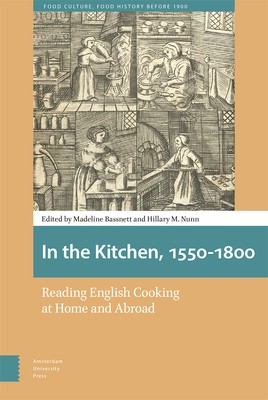
- Išsiųsime per 12–18 d.d.
- Leidėjas: Amsterdam University Press
- ISBN-10: 9463721649
- ISBN-13: 9789463721646
- Formatas: 16.3 x 24 x 2.4 cm, kieti viršeliai
- Kalba: Anglų
- Extra -15 % nuolaida šiai knygai su kodu: ENG15
In the Kitchen, 1550-1800 (el. knyga) (skaityta knyga) | knygos.lt
Atsiliepimai
Aprašymas
In the Kitchen insists that the preparation of food, whether imaginative, physical, or spatial, is central to a deeper understanding of early modern food cultures and practices. Devoted to the arts of cooking and medicine, early modern kitchens concentrated on producing, processing, and preserving materials necessary for nourishment and survival; yet they also fed social and economic networks and nurtured a sense of physical, spiritual, and political connection to surrounding lands and their cultures. The essays in this volume illuminate this expansive view of cooking and aspire to show how the kitchen's inner workings prove tightly, though often invisibly, interwoven with local, national, and, increasingly, global surroundings. Engaging with literary and historical methodologies, including close reading, recipe analysis, and perspectives on gender, class, race, and colonialism, we begin to develop a shared theoretical and practical language for the art of cooking that combines the physical with the intellectual, the local with the global, and the domestic with the political.EXTRA 15 % nuolaida su kodu: ENG15
Akcija baigiasi už 2d.01:42:43
Nuolaidos kodas galioja perkant nuo 5 €. Nuolaidos nesumuojamos.

- Leidėjas: Amsterdam University Press
- ISBN-10: 9463721649
- ISBN-13: 9789463721646
- Formatas: 16.3 x 24 x 2.4 cm, kieti viršeliai
- Kalba: Anglų




Atsiliepimai